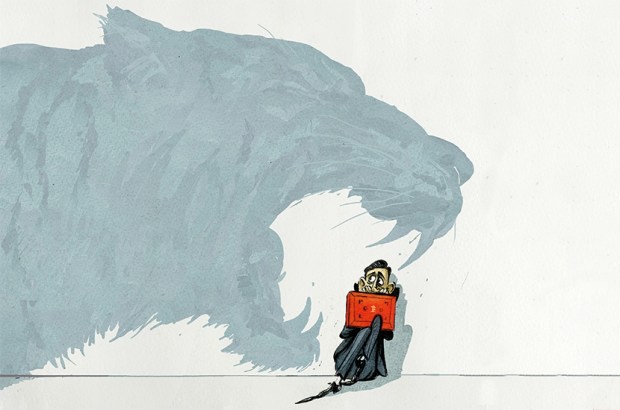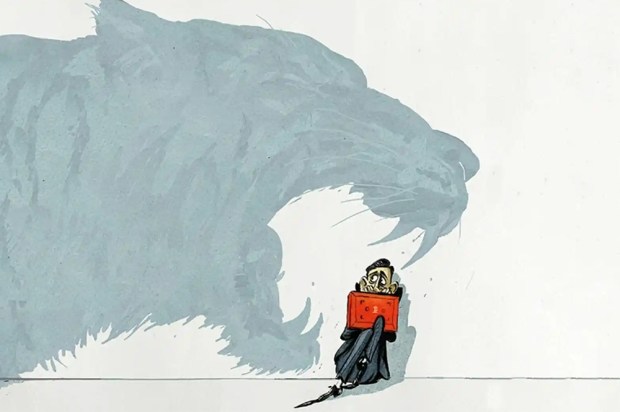From supermarkets to superyacht builders, sales figures are remarkably buoyant: consumer debt may be rising too, but no one can say the New Year economic mood is markedly downbeat. This column feels obliged to find something on the horizon to worry about, however, and my telescope is focused on inflation.
If deflation was a real threat to developed economies in recent years, the pendulum is now swinging the other way. UK inflation is expected to hit 3 per cent by late 2017, what with higher import costs generally thanks to the weak pound, fuel-price rises as a result of Opec’s effort to restrict oil production, the pass-through to consumers of higher business rates in London and the south-east, and higher rail fares for no good reason at all. Wages are unlikely to keep pace — except of course for those at the top of the income scale, fuelling inequality arguments and encouraging Corbynite union leaders, emboldened by their success at Southern Rail, to make mayhem.
Globalisation will amplify the trend. In the US, the Fed is warning that Trump’s promised tax cuts and fiscal stimuli will boost prices as well as growth. In China, inflation was actually a touch lower than expected in December, at 2.1 per cent — vegetables fell, though pork rose — but surging commodity markets signal momentum ahead.
In Germany, inflation has reached 1.7 per cent while frugal citizens watch with growing irritation the erosion of their savings as a result of European Central Bank policies designed to ease the debt burden of profligate southern euro members: inflation is about to join migration as a critical strain on the European project.
Low single-digit price rises hardly seem a cause of woe when we recall the wild double–digit spikes of a generation ago. But just as the unexpected whiff of a cigarette in a smoking-banned building catches the throat because we’re no longer used to it, so the return of even moderate inflation may be the catalyst for all sorts of tensions and troubles ahead.
The bank that got better
Last week a bad-news Italian bank story, this week a better-news British one: you and I are no longer the biggest shareholders in Lloyds Banking Group. Our collective stake has been reduced from 43 per cent at the time of the bailout that followed Lloyds’ doomed acquisition of HBOS in late 2008 to below 6 per cent today. Having abandoned George Osborne’s plan to stage a razzmatazz public share offer, the Treasury has so far managed to recoup £17 billion of the £20 billion of Lloyds’ bailout cash through institutional placements. Taxpayers now hold fewer shares than BlackRock, the US fund management giant; with Lloyds’ share price rising steadily since a Brexit-vote trough last summer and the pound so weak, it should be easy to find other dollar-based buyers for the last slice.
As for Lloyds itself, we must hope it now reverts to being ‘the bank that does dull’, as The Spectator affectionately labelled it a decade ago. It has cleaned out its Augean stable of PPI claims and (let’s also hope) toxic real-estate loans, the latter mostly the legacy of the Bank of Scotland side of HBOS. It succeeded in spinning off TSB as a ‘challenger bank’ (though TSB then lasted less than a year before being snapped up by Sabadell of Spain).
Lloyds has even returned to the acquisition arena in a modest way, picking up the MBNA credit card business from Bank of America for £2 billion late last year. And it has restored, at least partially, the dividend stream that once made it such a popular share for the cautious investor. Chief executive António Horta-Osório, who at an earlier stage seemed worn down by the challenge, has come through strongly and been hugely remunerated for his pains.
In the span of 250 years since Quaker merchant Sampson Lloyd first opened his Birmingham banking parlour, eight years or so in the bailout sin-bin is a relatively brief aberration. It would not have happened at all if the Lloyds board, under Sir Victor Blank, had not felt an untimely urge to make their bank look less dull, and Blank had not bumped into Gordon Brown (at a City reception on 15 September 2008, to be precise) promising that competition issues would be swept aside and flags would fly if Lloyds would kindly save the government the embarrassment of nationalising HBOS. So — like Monte dei Paschi di Siena last week — Lloyds stands as another cautionary tale for bankers tempted by excitement.
What it does not do is light a path for RBS, which remains 73 per cent owned by you and me. Rather the reverse: failure over the same period to complete any of the steps towards redemption illuminated by Lloyds confirms my view that for RBS, radical break-up is the only solution.
Swan dive
Having written last week, advertorially but sincerely, about the pleasures of cruise holidays, I was sad to see the sudden demise of the venerable Swan Hellenic line, owned latterly by the less venerable but hitherto nimble All Leisure group, which has collapsed. Famed for its lecturing bishops and archaeological itineraries, Swan has been hit from three sides. Most of its operating costs are in dollars and euros while its revenues are in devalued sterling. Many of its traditional North African, Eastern Med and Black Sea ports are out of bounds because of terrorist threats. And its ultra-loyal customer base — a rather austere, retired–professor kind of crowd — is getting old as well as feeling the financial pinch.
Swan’s ship Minerva — currently stranded in Marseilles — was originally built as a Russian ‘research vessel’ and has sailed under several other names for other cruise lines. So she will probably sail again under a different flag, but without Swan’s floating-Oxbridge-college ambience. I hope someone tries to revive the brand and rescue the memorabilia of this eccentric maritime venture. If my lottery ticket comes up this week, I might even bid for it myself.
Got something to add? Join the discussion and comment below.
Get 10 issues for just $10
Subscribe to The Spectator Australia today for the next 10 magazine issues, plus full online access, for just $10.
You might disagree with half of it, but you’ll enjoy reading all of it. Try your first month for free, then just $2 a week for the remainder of your first year.














Comments
Don't miss out
Join the conversation with other Spectator Australia readers. Subscribe to leave a comment.
SUBSCRIBEAlready a subscriber? Log in